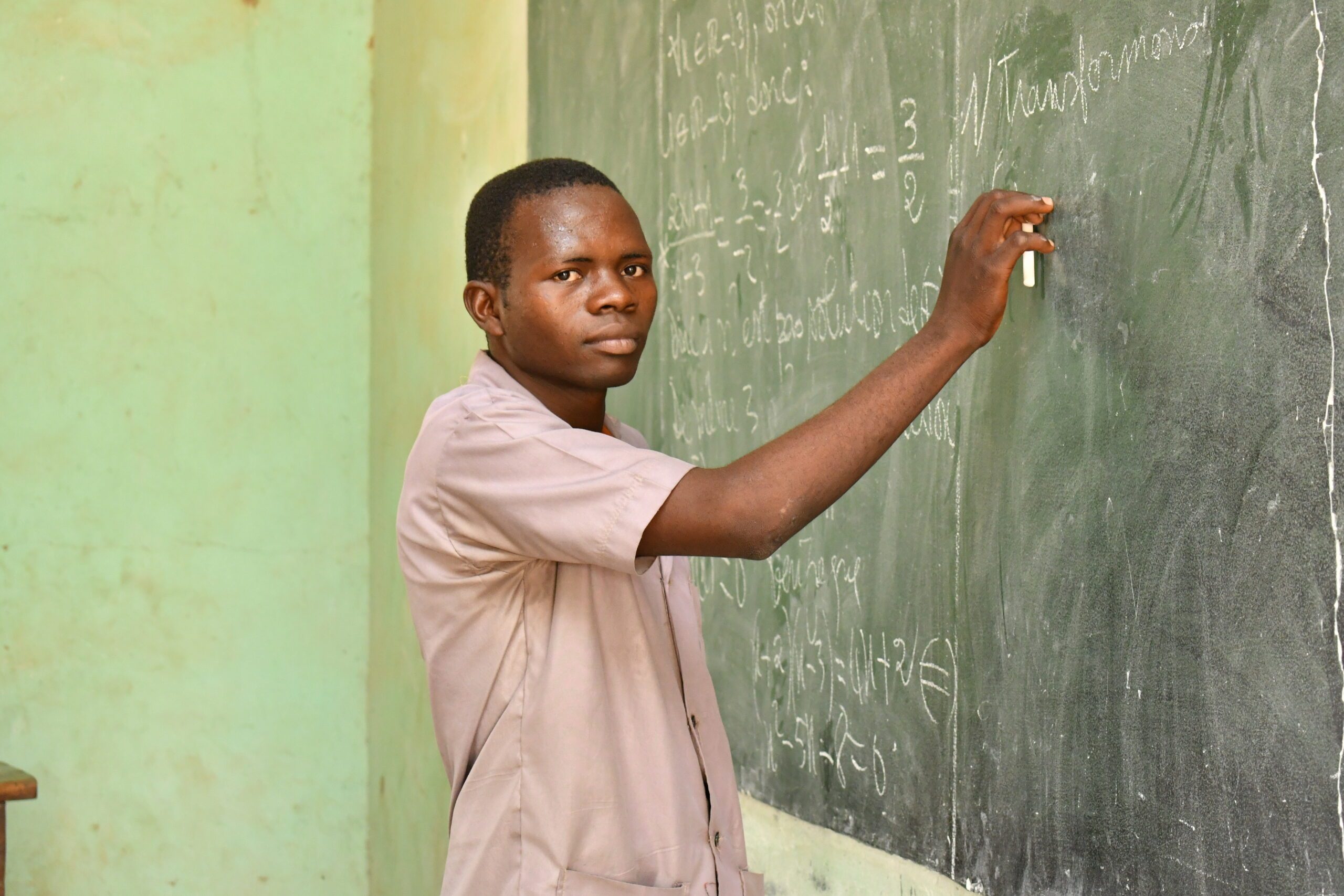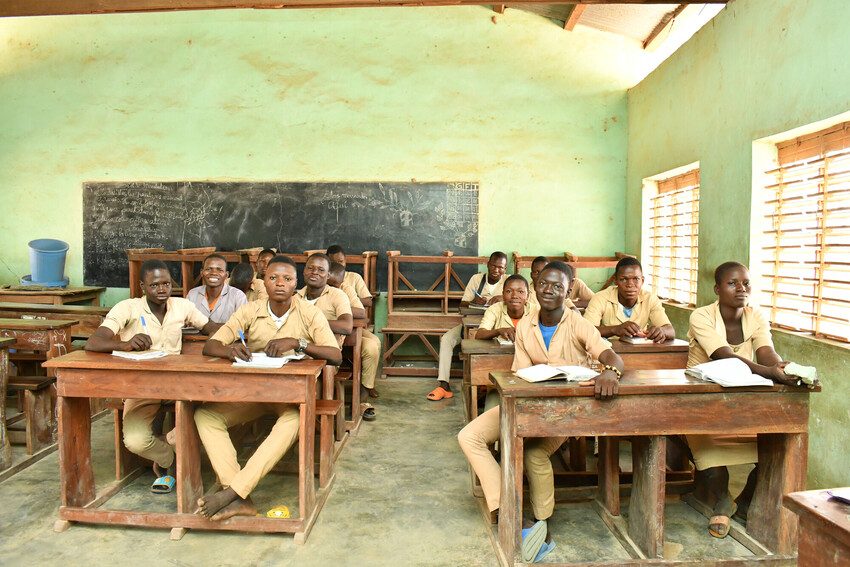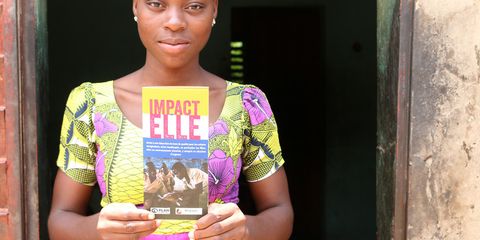After having to leave school to work on his family’s farm, Pascal is now back in full time education and aspires to be a doctor in the future.

At the age of 10, Pascal left school to work on the family farm. After his father’s death, Pascal was forced to drop out of primary school, unable to continue his education for lack of funds. “I couldn’t find myself,” he says. “I went to work in the fields with my mother.”
Children from Atacora, a department in north-west Benin, often face significant difficulties in accessing education due to a combination of insecurity, poverty and inadequate infrastructure. A largely rural region, many families rely on farming to survive and parents often prioritise children’s labour over education, with children working on farms or in the home instead of attending school.
With the aim of improving educational opportunities for children aged 8-14, Plan International works in 4 rural communities in Atacora to improve the quality of formal education in primary schools and to provide non-formal education options such as ‘bridge classes’ for children who have never attended school or, like Pascal, have dropped out. After being identified by the project as an out-of-school child, Pascal, who was then 14, enrolled in a community education centre at the local primary school, which offered an accelerated learning curriculum over a nine-month period. “I was very happy to be back in school,” he says.
Studious and conscientious, Pascal worked hard and was reintegrated into the regular primary school curriculum at the end of the school year. He later passed his primary school exams and is now at secondary school, where his favourite subject is science. To support his studies, Pascal still works as a farm labourer, but this time he has a clear goal in life. He now hopes to become a doctor, “I am determined to continue and complete my studies to become a doctor and take care of my community,” he says. “The centre has given me the chance to build my future and look forward with confidence.”

About the project
Plan International’s ‘Access and Retention of Girls and Boys in Basic Education in 4 Rural Communes of Atacora’ (EduFI-Atacora) project aims to improve educational opportunities for children aged 8-14 in 4 rural communes of the Atacora department in northern Benin: Boukombé, Cobly, Kérou and Kouandé.
The project addresses the significant inequalities in access to and retention in education that persist in Benin, particularly in rural and low-income areas such as Atacora, where disparities based on gender, geography, socio-economic status and vulnerabilities such as disability are pronounced.
The initiative focuses on both the supply and demand sides of education. On the supply side, it aims to improve the quality of formal education in primary schools and to provide non-formal education options such as ‘bridge classes’ (classes passerelles) for children who have never attended school or have dropped out.
These bridge classes provide accelerated remedial education to help reintegrate these children into the formal system. On the demand side, the project works to increase community and family interest in education by creating an enabling environment for school attendance and retention.
The main activities of the EduFI-Atacora project are:
- Improving the quality of education: The project improves the quality of education in primary and secondary schools (collèges) in the 4 municipalities by supporting teacher training and upgrading school facilities.
- Supporting out-of-school children: The project established 12 community education centres to provide bridge classes to enable children who are not enrolled or who have dropped out of school to catch up and return to formal education.
- Economic empowerment: The project established 24 new Village Savings and Credit Associations to support income-generating activities such as agricultural production and food processing. This helps families afford school-related costs and reduce the economic pressures that often lead to child labour or early school dropout.
- Individual support: This provides tutoring and educational follow-up for newly enrolled or reintegrated students to ensure their success in school and to address their specific learning needs.
Categories: Education, Youth empowerment


